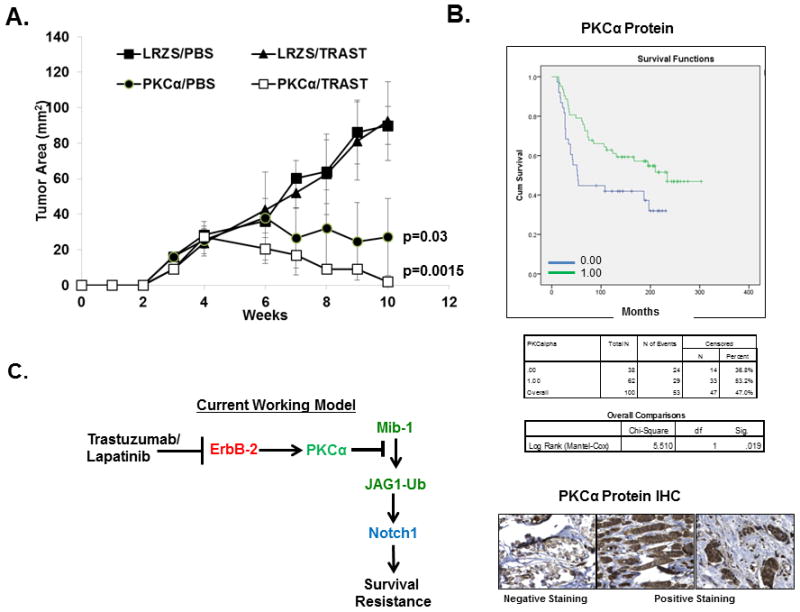Figure 6.

PKCα overexpression reverses trastuzumab resistance and predicts better survival in women with ErbB-2+ human breast cancer. A, Overexpression of PKCα inhibits growth of BT474 trastuzumab resistant tumor xenografts. Five million BT474 trastuzumab resistant cells retrovirally transduced with LRZS-linker or LRZS-PKCα were injected into mammary fat pads of 20 female, nude athymic mice, respectively. Tumors were allowed to grow to a mean cross sectional area of approximately 10–20mm2 and then mice were randomized to PBS or trastuzumab, injected i.p. once weekly for up to 10 weeks. Statistical significance was calculated by a two-way ANOVA. B, Low PKCα protein predicts poorer overall survival in women with ErbB-2 positive breast cancer. The Nottingham cohort of 100 ErbB-2 positive breast tumor tissues were stained for PKCα protein and scored 0.00 for negative staining or 1.00 for positive staining. Overall survival follow up results were collected prospectively up to 400 months. Kaplan-Meier analysis for overall survival was performed on negative and positive expression of PKCα. Statistical significance was calculated using Log Rank (Mantel-Cox) test. Immunohistochemistry for PKCα protein in ErbB-2 positive breast cancer tissue. The three panels are representative of negative expression (top), high expression (middle), and moderate expression (lower). C. Model summarizes conclusion of current study. ErbB-2 through PKCα blocks the interaction of Mib-1 with Jagged-1, subsequently limiting ubiquitinylation of Jagged-1 to restrict Notch activation. Jagged-1-mediated Notch activation by trastuzumab or lapatinib is required for ErbB-2 positive breast cancer survival and resistance.
